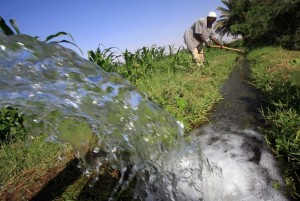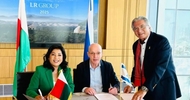
Jordan Times, 16 November 2009
By Hani Hazaimeh
AMMAN - The government is expected to conclude a revised study of a Jordanian agricultural initiative in Sudan to decide whether to revive the megaproject, a senior official said on Sunday.
Agriculture Ministry Secretary General Radhi Tarawneh said the feasibility of the project, which entails Jordan cultivating agricultural products near the Nile to be shipped directly to the Kingdom's markets, needed to be reviewed due to the economic climate.
"We decided to update a previous feasibility study due to the fact that the prices of food items that will potentially be grown on the project's lands, including fodder and grains, have changed drastically over the past year," Tarawneh told The Jordan Times yesterday.
The government conducted a $359,000 feasibility study on the project in 2003, funded by the Islamic Bank in Jeddah.
The study showed that yields from the project would provide the Kingdom with at least 60 per cent of its annual needs of meat, 100 per cent of clover, 40 per cent of garlic, 100 per cent of bananas and 100 per cent of mangoes, according to the ministry.
Tarawneh added that the ministry is coordinating with the Army-owned Al Bashaer Company, which is currently utilising around 4,000 dunums of the Sudanese lands, to implement the project and ensure the Kingdom's food security.
In early October, Minister of Agriculture Saeed Masri reported that the Sudanese government intended to take back the land allocated for the megaproject, some 87,000 dunums, if Jordan did not implement the project by the end of last month.
However, Tarawneh said negotiations are still ongoing with the Sudanese government in order to extend the project's deadline by one year.
Earlier last year, the government announced a plan to enter into an agreement with a consortium comprising four Jordanian firms under which they would benefit from customs exemptions and other incentives provided by the Sudanese government.
The plan did not materialise after the private sector withdrew, citing the government's failure to fulfil its JD10 million share in the JD60 million project.
Despite the lack of a private sector partner, Prime Minister Nader Dahabi instructed the ministry to go ahead with the initiative, according to Masri.












